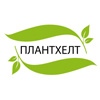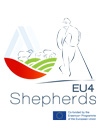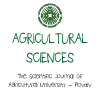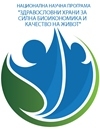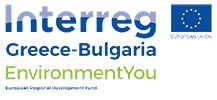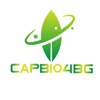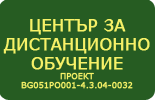Development of sustainable tourism
|
Course title: |
Development of sustainable tourism |
|
|
Course code: |
IFDST |
|
|
ECTS: |
5 |
|
|
In-class hours |
Lectures: |
30 |
|
Laboratory work/Tutorials: |
30 |
|
|
Self-preparation hours |
Practical training: |
45 |
|
Other: |
20 |
|
|
Total hours: |
125 |
|
|
Language: |
English |
|
|
Study cycle: |
BSc, Master |
|
|
Semester: |
Winter, summer |
|
|
Faculty: |
Faculty of Economics |
|
|
Name of the lecturer(s): |
Assoc. Prof. Krasimir Aleksandrov, PhD |
|
|
Mode of delivery: |
Face-to-face, distance learning |
|
|
Prerequisites: |
No |
|
|
Learning outcomes of the course unit: |
The purpose of the course is to enhance a common understanding and commitment to Sustainable Tourism, and to demonstrate how it serves as a vehicle to foster economic and social growth through the achievement of development imperatives, while minimizing negative social, cultural, and environmental impacts. This course is focused on understanding the importance of sustainable tourism development. The tourism sector can serve as a vehicle to foster economic and social growth by achieving development imperatives while minimizing negative social, cultural, and environmental impacts. Describing the meaning, requirements, and contribution of sustainable tourism, considering how this relates to development priorities. Tourism policies, strategies, or master plans that commit to sustainability principles and are effectively implemented. Development of small local enterprises, including improving linkages between tourism and other sectors, such as agriculture, handicrafts, and other creative industries, as well as between businesses. A system of indicators suitable for all tourist destinations, encouraging them to adopt a more intelligent approach to tourism planning. Measuring tourism sustainability based on the European Tourism Indicators System. |
|
|
Course contents: |
1. Definition of sustainable tourism. Theoretical platform of sustainable tourism and its implementation. 2. The importance of stakeholders in sustainable tourism. 3. Principles of sustainable development in tourism enterprises. 4. Important barriers to the application of the principles of sustainable development. 5. Economic aspects of sustainable tourism. 6. Economic profitability; local prosperity; quality of employment; social equity. 7. Environmental aspects of sustainable tourism. 8. Maintaining and building quality of the landscape, in both urban and rural areas, and preventing ecological and visual pollution. 9. Biological diversity. Promoting and protecting the environment, natural habitats, and wildlife, as well as minimizing the impact of tourism on the environment. 10. Effective waste management. Minimizing of the use of rare and non-renewable resources in the development of tourism. 11. Socio-cultural aspects of sustainable tourism. Welfare of the community. 12. Welfare of the community, including social infrastructure, access to resources, environmental quality, and avoidance of social corruption and the exploitation of the resources. 13. Measuring and monitoring tourism impacts on local destinations. Tourism resources that have the potential to be converted into viable and attractive tourism products. 14. European tourism sector for sustainable development. Strategic policy examples. 15. Development of sustainable, responsible, and high-quality tourism products. |
|
|
Recommended or required reading: |
Todd, Angelo, Sustainable Tourism Development, Publisher: Larsen and Keller Education, (2017). Slocum, Susan L., Abena Aidoo & Kelly McMahon, Business of Sustainable Tourism Development and Management, Publisher: Routledge, (2020). Hall, C. Michael, Stefan Gössling & Daniel Scott, The Routledge Handbook of Tourism and Sustainability, (2015). Gössling, Stefan, C. Michael Hall & David Weaver, Sustainable Tourism Futures - Perspectives on Systems, Restructuring and Innovations, (2009). Holden, Andrew & David Fennell, The Routledge Handbook of Tourism and the Environment, (2013). |
|
|
Planned learning activities and teaching methods: |
Monological explanation (lecture, presentation). The lectures are supported by literature-based material and PowerPoint presentations. Dialogue methods (conversation, discussion, brainstorming) The students develop assignments on specific topics. |
|
|
Assessment methods and criteria: |
The final assessment is based on the results of the written exam (50%), the course project (30%), and the exercise evaluation (20%). |
|
 - Events on the occasion of the 80th anniversary of AU
- Events on the occasion of the 80th anniversary of AU
